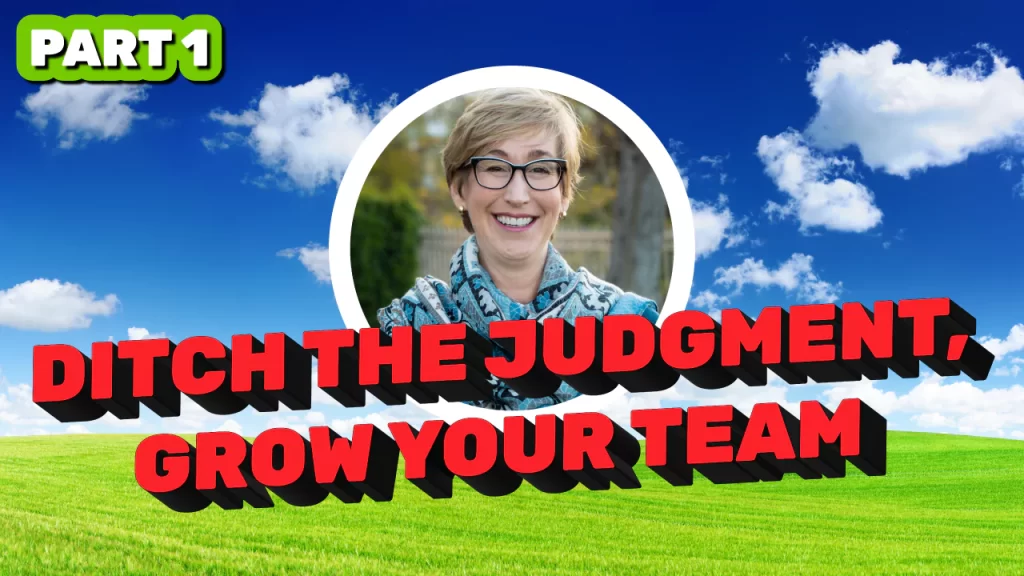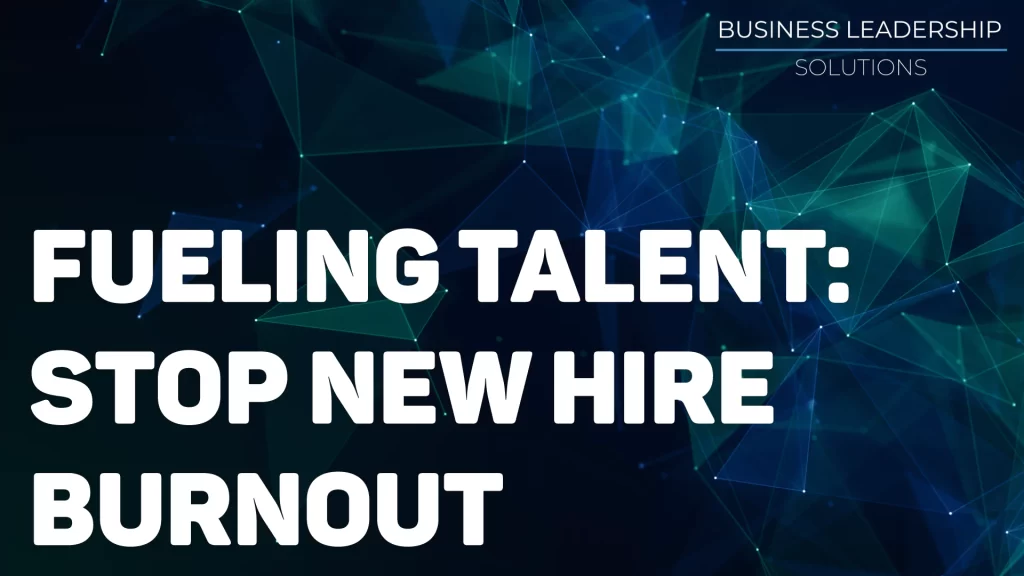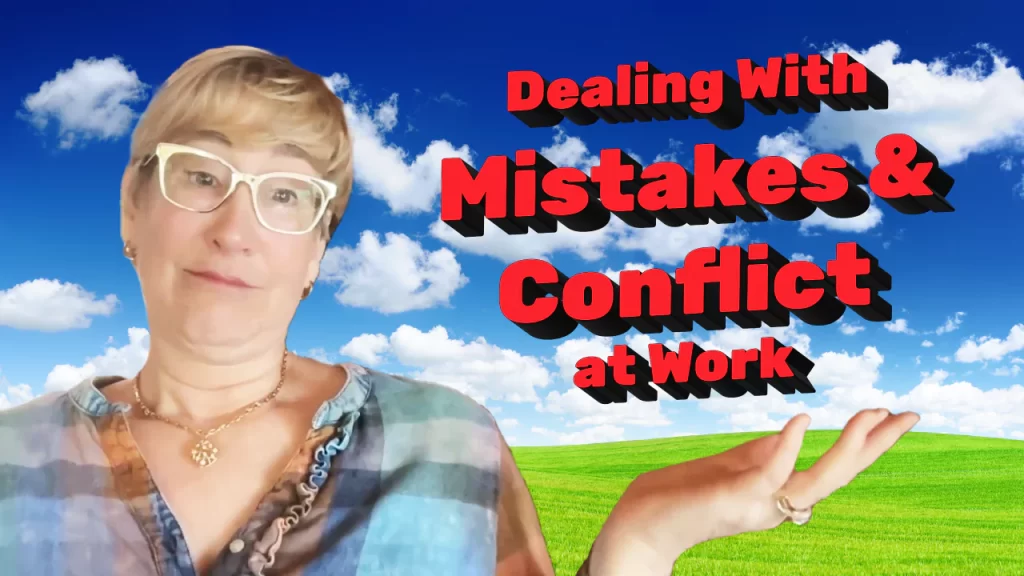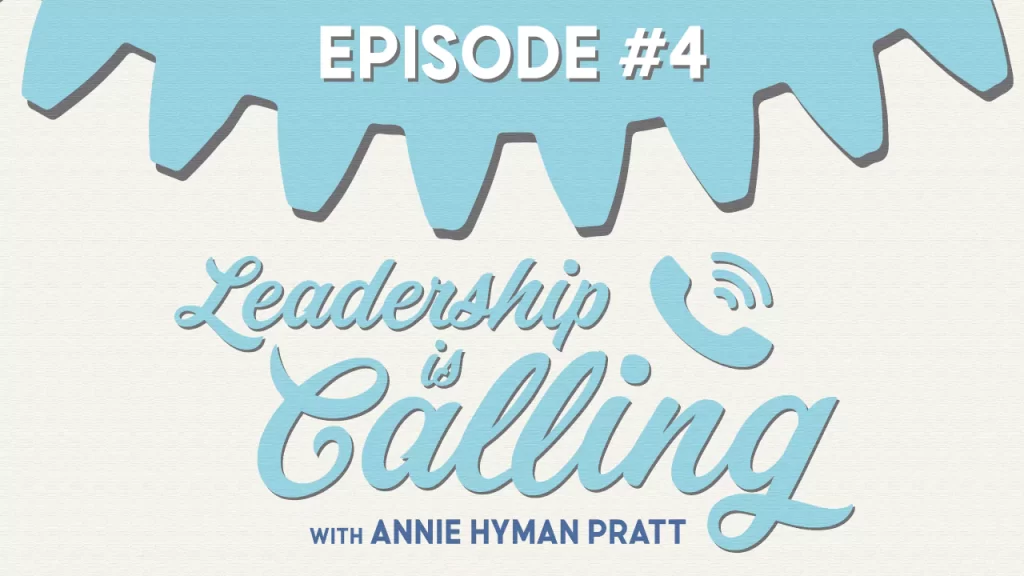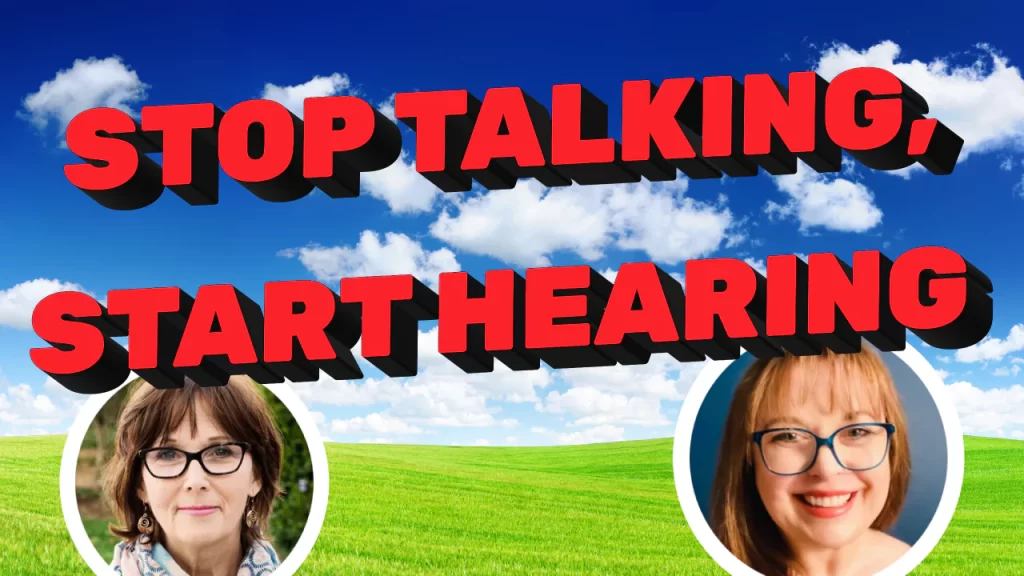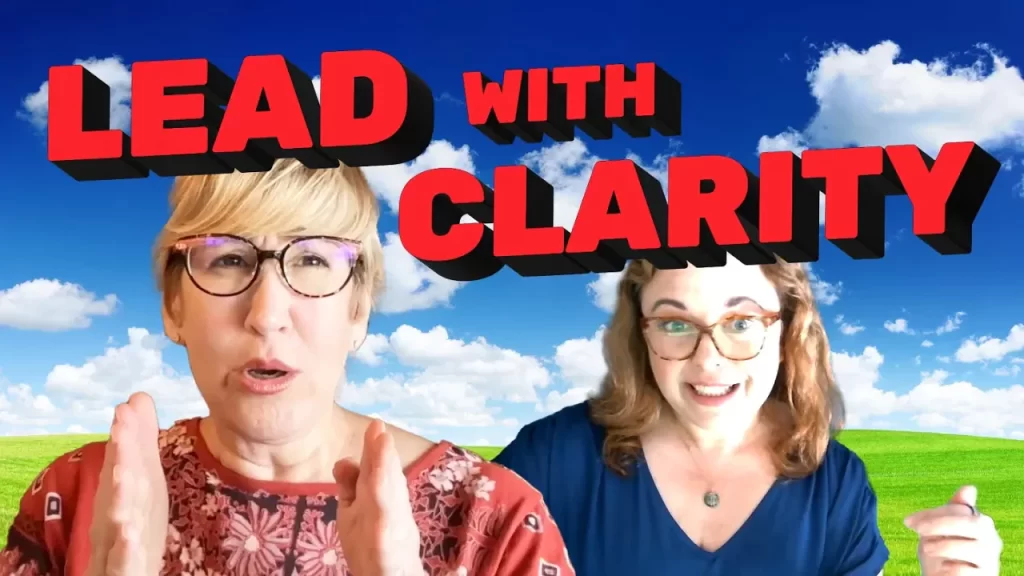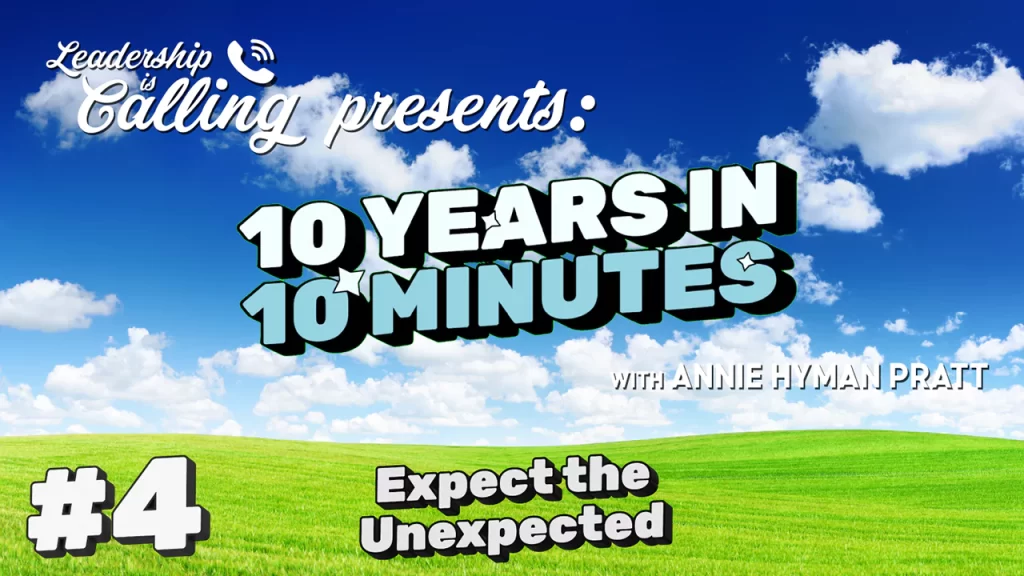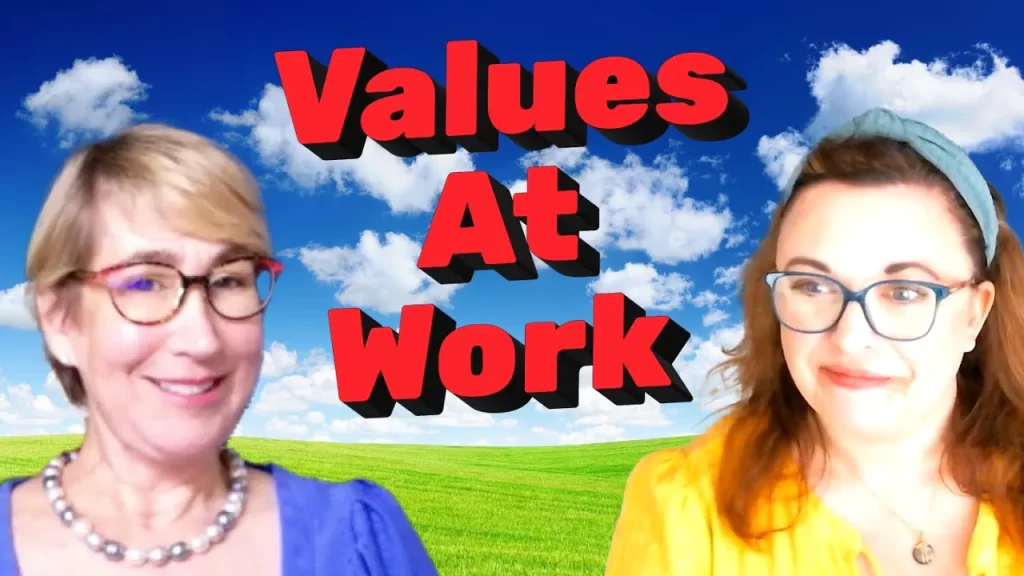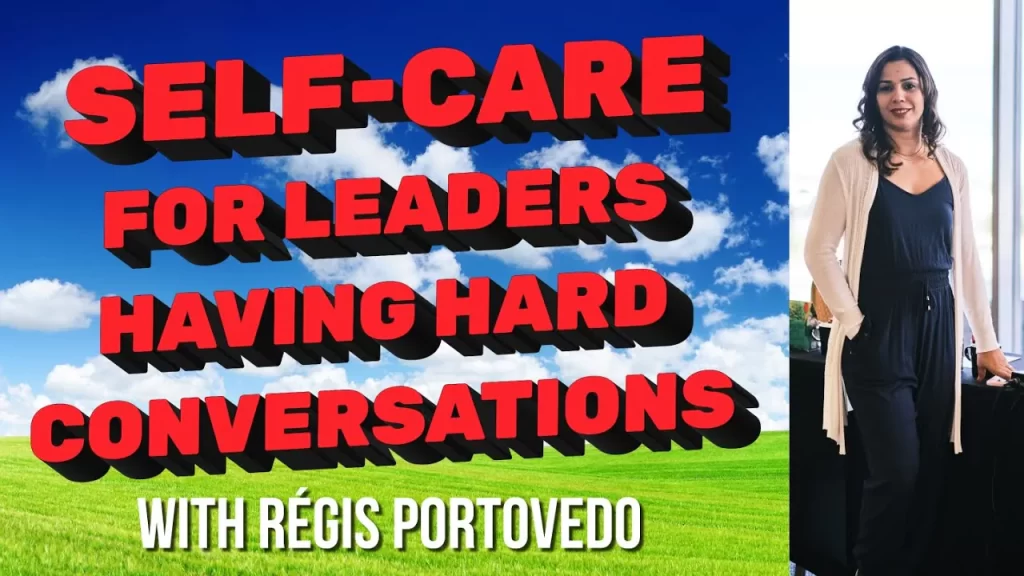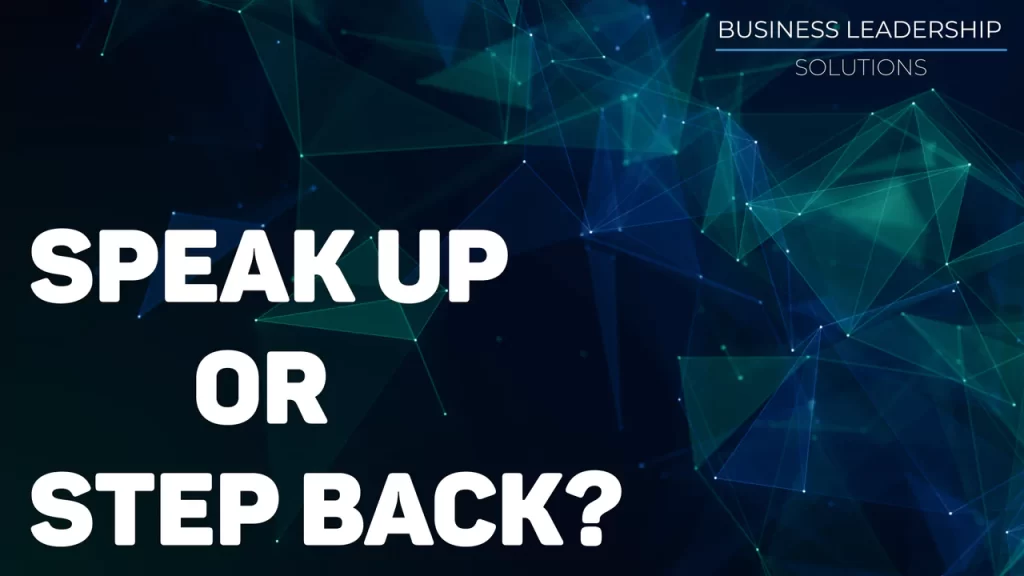Episode #28: The Power of Healthy Vulnerability in Leadership
Leadership is Calling Episode #28
Barbara Schindler & Heather McGonigal
- Description
- Transcript
The Power of Healthy Vulnerability in Leadership
Healthy vulnerability is essential for effective leadership. Learn how to be more vulnerable as a leader to build trust, connection, and innovation.
Vulnerability is often seen as a weakness, but it can actually be a powerful strength in leadership. When leaders are willing to be vulnerable, they build trust and connection with their team members. They also create a safe space for others to be vulnerable, which can lead to greater creativity and innovation.
In this video, Barbara and Heather explore the benefits of healthy vulnerability in leadership and share tips on how to be more vulnerable in your own leadership.
Key Points
- Healthy vulnerability is essential for effective leadership.
- Leaders who are vulnerable show that they are human and relatable, which builds trust and connection with their team members.
- Vulnerability also allows leaders to be more open to feedback and new ideas.
- There are many ways to be vulnerable as a leader, such as sharing your struggles, asking for help, and admitting when you’re wrong.
- Creating a safe space for team members to be vulnerable is essential for building a high-performing team.
Related Resources
Downloadable Worksheet: The 5-Day Appreciation Journal: A Culture of Caring
Meet The Leading Edge Team
Articles by Barbara
Articles by Heather
More on Compassionate Leadership
Auto-Generated Transcript – unedited version
The Power of Healthy Vulnerability in Leadership
Definitely love love this topic and find it interesting and evolving. And it’s kind of like vulnerability might feel counterintuitive for people to think that that’s important to leadership, but it really, really is.
So when you say healthy vulnerability, I think that the best leaders know that they don’t have it all right, or they don’t have all the answers. Or, you know, whether, you know, I think a part of leadership is being open to what? I don’t know. I don’t know. And you build a team where the people on the team have other thinking and expertise.
Right. And then you have, you know, other masterminds, maybe people in your community, your peers that you’re curious about what they’re thinking and knowing. And you have hopefully, you know, so a business coach or consultant supporting you on your journey that you would go to for their expertise, all of that, getting the richness of, you know, kind of to me being a real leader or like the type of leaders I believe we need more of is being vulnerable and being open to like I, I don’t got it all.
Yeah. You know, it’s definitely and, you know, vulnerability is kind of happening anyway, and to be healthy vulnerability, I often, I think a couple different things. One is just being conscious of the humanness of feeling vulnerable.
Right. And healthy vulnerability is like being, you know, not only aware but being expressive through that, having that be part of your experience. Right. You know, sometimes I certainly do this myself, and I often see this in some of my coaching experiences, yeah, in teamwork. I love this idea of vulnerability actually gives you access to the resources, the support, the other things that can actually help you be better. And as we’re on teams together too, we learn these things about one another.
I was thinking about one thing. I think my team knows about me. I know that our project manager at one point had a conversation. I was like, whenever a big plan gets rolled out, I get very quiet and you may notice that. And that’s because in my mind, I’m like assigning all the things to me, even if that’s not true, it’s not reality, but that’s what happens inside of me. Oh, my gosh, I have to do that. And I get really, really quiet.
Right. And this is going back a few years, but I chose to share that with the teammate who was, you know, proud in unveiling their plan because I didn’t want them to take my quietness in that moment as any sort of like not on board. The plan isn’t great. Anything like that, which they, you know, just being human, they could misinterpret. So sharing in myself like, no, I just entered this state of overwhelm. And even though you’re not assigning all the things to me, my brain is assigning them all to me and I’m kind of going through this process. So I had shared with this teammate that like so the first time you roll out the plan, if I’m quiet, just know that that’s probably what happening. But if you give me 24 hours to recover from that, then we can have a different conversation about the plan. Right.
And I use this as an example. I think it’s a good example of what you were sharing about Barbara and how it shows up in action inside of teams to like dare, dare to be vulnerable. Right?
And you have to be vulnerable. Say if you’re in your role and you need help, guess what? I have so many things on my plate I think I might need an assistant. At this point. You have to be vulnerable in order to put that out there to get the help you need, meaning the resources you need. So real success in business today does require a healthy vulnerability.
How else do you think about it?
I was thinking, you know, in what you were sharing, Yes. Well, you know, if there’s something distracting me, then it’s in that case, your client knows how they’re right. So like, yeah, well, for your point with the whole human, we spend a lot of time at work. We spend a lot of time with our coworkers. And I remember one of my original jobs in life was waitressing. And I was waitressing so much at the time that I was there all the time, like working doubles, all other kinds of things, putting myself through college. And one of my coworkers was like, I see you more than my family, you know, And we’ve all heard that term like work husband or work life. And that’s because we’re with each other so much. We really do learn about each other.
But if we can share some of these things, you know, and we learn how to set one another up for success, I think like, you know, it’s like it’s not that anyone has to do anything to take care of Heather when she gets overwhelmed by the big plan. It’s just to know that about me so that that’s not it doesn’t cause any negative ripples.
And it’s like, okay, that’s just Heather when a big plan rolls out, you know, and then other people on your team have other things, you know, maybe they need to hear, we notice, oh, this person receives information really well in bullet form or, you know, they need me to write them a note, but also do a voice memo like we learn these different things about one another.
And I think it’s also okay, it’s actually a point of leadership to recognize what works for you and what support you might need from your team and the ways that you can set one another up for success. I think it is a good demonstration of healthy vulnerability. yeah, absolutely. You Yeah, Yeah. right. Because we do spend a lot of time at work and it’s even more, even more so. I think you can see the younger generations as they’re entering the workforce. You know, they, they want a different quality of life and they also want to have a positive impact in, you know, if I’m going to be working, you know, they’re being vocal at least I think, you know, we we you know, we’ve been in business a while. We definitely live to have that positive impact. But you can hear people vocalizing that more, right, is like, yes, we all may have to work to support ourselves, but what matters is that what I do actually matters, or that even that connection and care, I do as a customer service representative, that I’m able to take care of the people as I do. That role matters to me. And that really is, you know, I think more and more on the forefront. But it’s always been there and but I think this vulnerability connects to the people part that we teach in many ways, and that is about connecting and caring and that I care how this goes for you being like a general expression of maybe being on a healthy entrepreneurial team or creating that healthy work environment or culture and that people want the ingredient you’re in, the feeling you want to have most is as we have each other’s back and we care how this goes for one another. And I get to use my gifts and talents here and have a positive impact. I think we.
Yeah, I agree. That’s good
So yeah, your topic. And I think if you are talking about the way you sing, I was like, I have often said, I think there should be a reality show. So if anybody wants to steal this idea, there should be a reality show where if, if you’re not if you’re like a terrible person, one day you get like a ticket and you have to be you have to wait tables for like a week because there are so many lessons in just like the human experience and relating and all of that in in those types of roles in that service profession. you made it all.
Yeah, Yeah. But definitely I think what we’re sharing here about the health of vulnerability to me, right, it’s a measure of success and being vulnerable will feed your success. It connects you to other people. It lets them know you and know how you can contribute. It allows them to be vulnerable with you, like your vulnerability and invites other people to share aspects of themselves. And you know, this really is at odds with any kind of leadership mentality that I think of as unhealthy, which is all about an individual and their ego or something like that.
So not not to go too far into that, but just like, you know, I think the healthiest way and the way of the current business environment we’re in, like through success comes in connecting and caring. At the same time, you go for your transformation and you make your money. You have a successful business, right? Because the scoreboard of the business, the revenue does matter. It has to work on paper.
But I think when we’re fueled by how we are helping, what is the transformation we’re providing? How is everybody on my team actually doing right now?
Like, yeah, I don’t know. And to me that’s the biggest measure of success. And right now that might just be my yardstick of success. But I’m hoping it continues to grow in popularity.
And I think that was a really good container to complete this conversation. It’s well-said.


